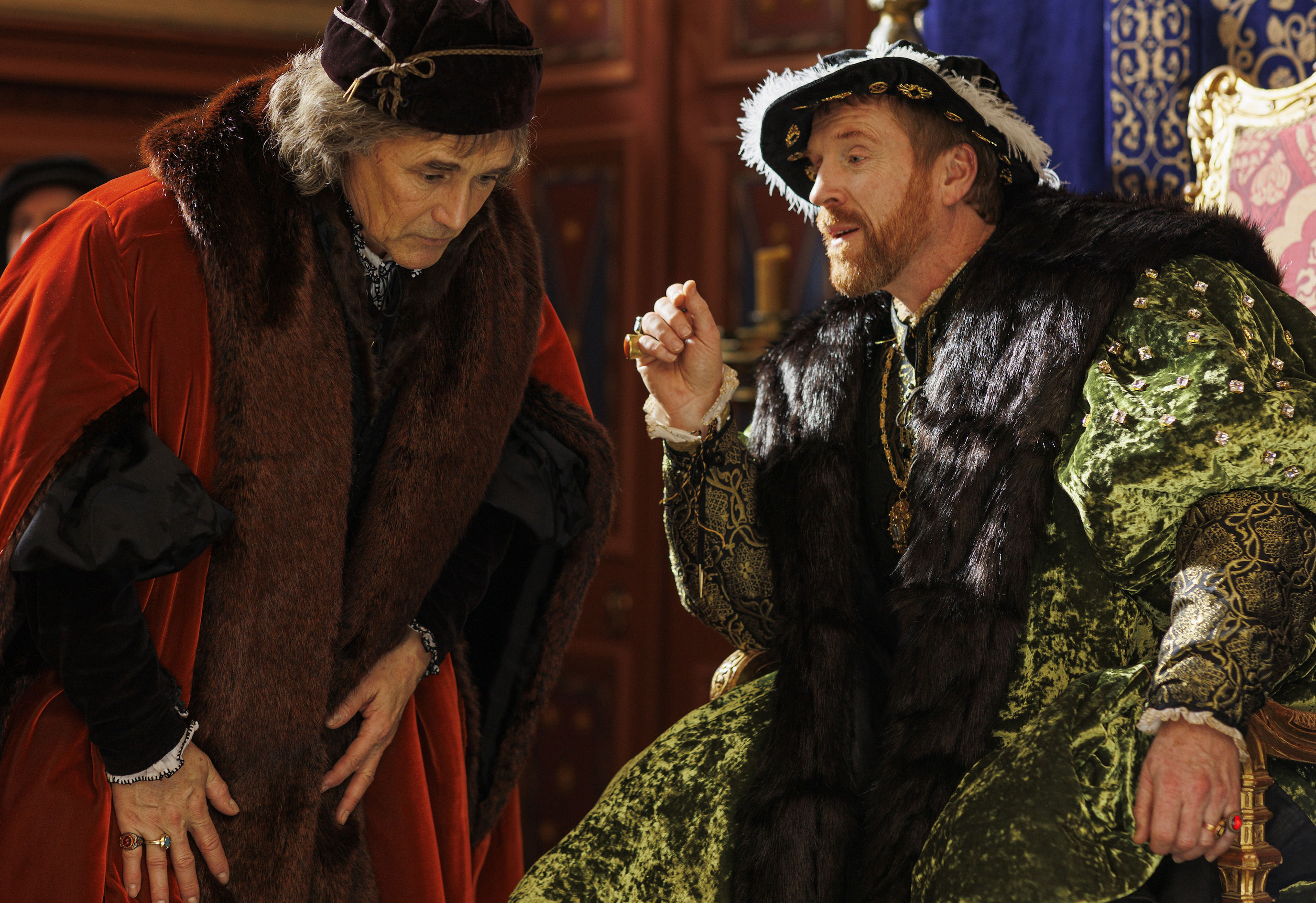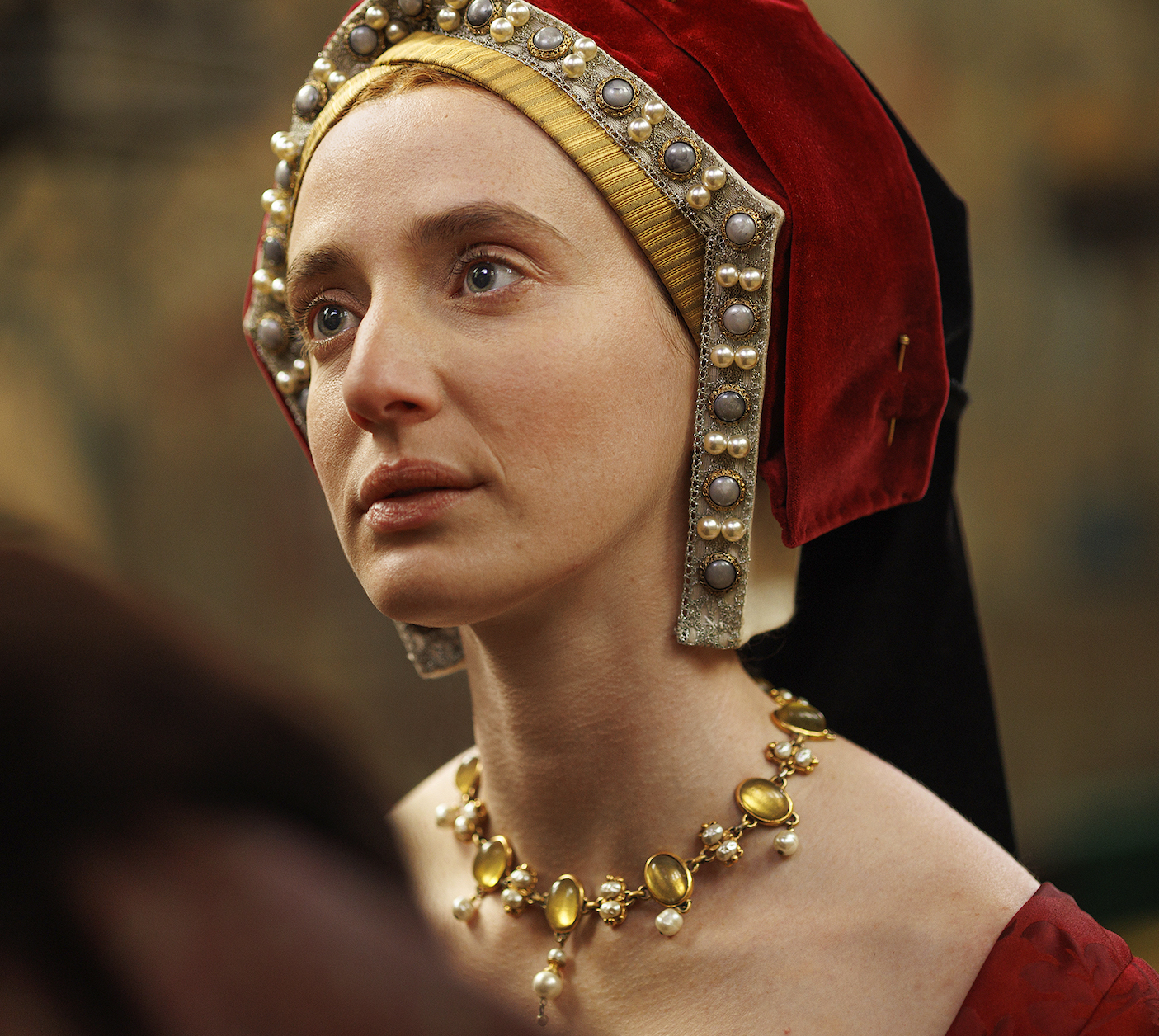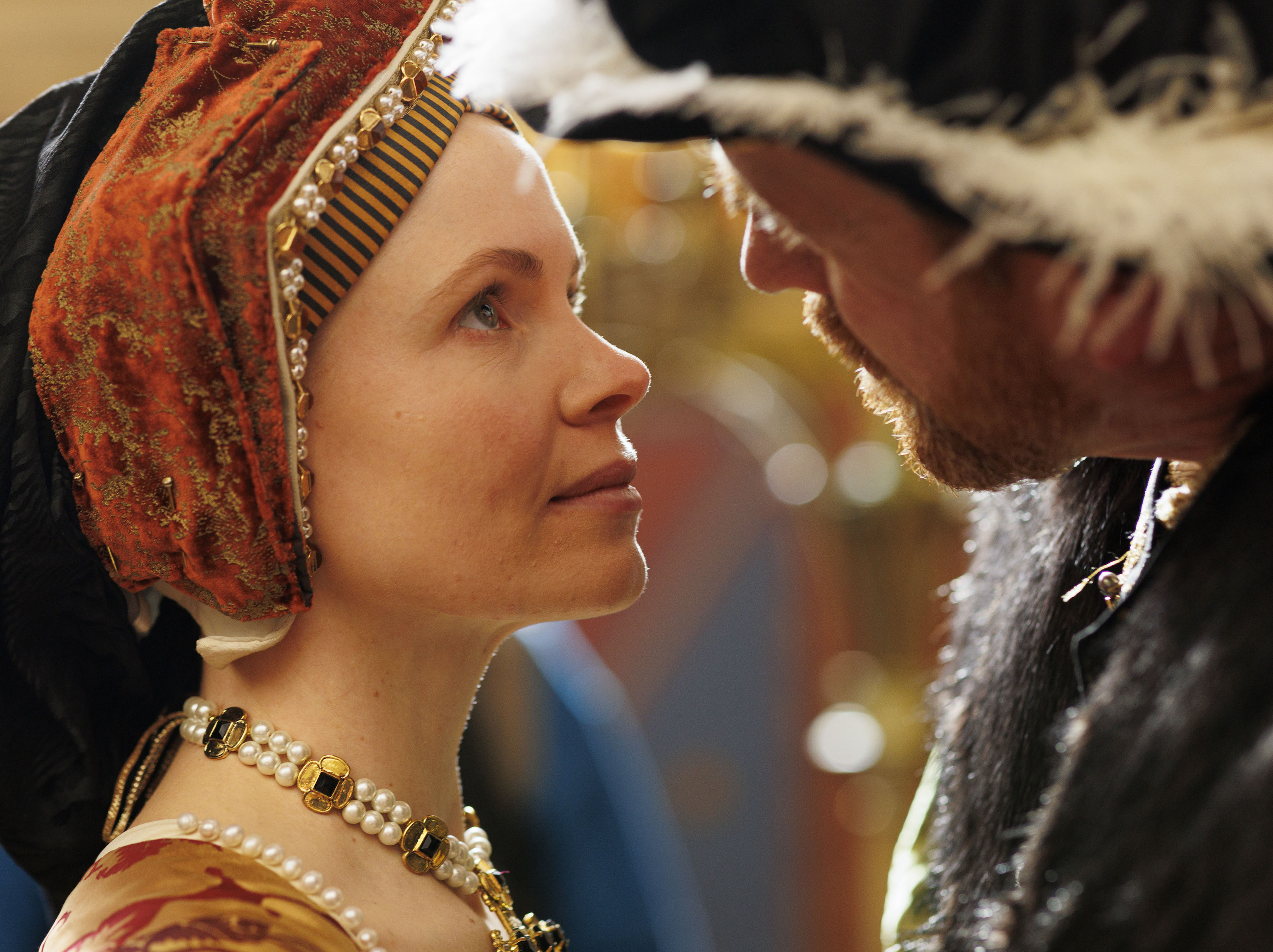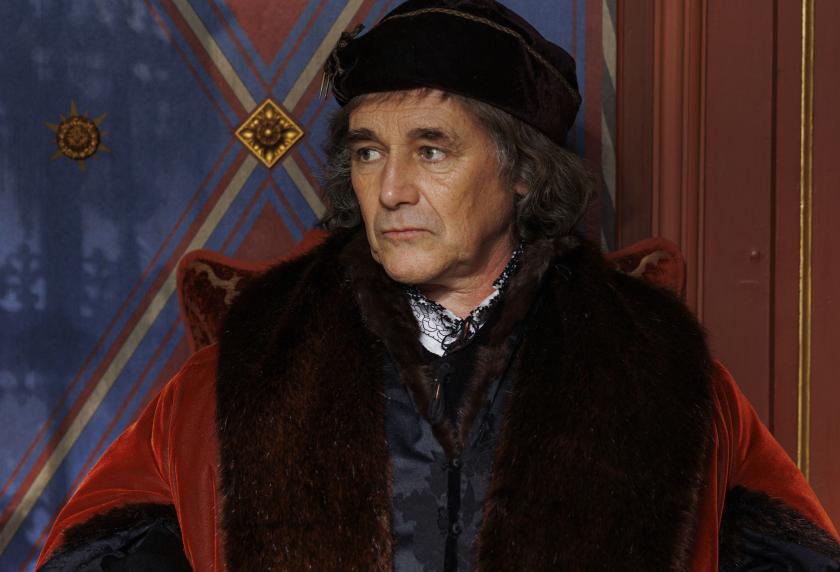“Previously on Wolf Hall…” It’s been nine years since Claire Foy memorably trembled her way to the block as Anne Boleyn, recapped at the start of the second and final season of the BBC’s handsome Hilary Mantel adaptation. It’s a deathbound affair for all, though.
The author herself is now dead; the original actor playing the Duke of Norfolk, Bernard Hill, as well, with Timothy Spall taking his place. Henry VIII’s pustulant leg has reduced his gait to an ominous slow limp; Jane Seymour – whom, the cross-cutting in Peter Straughan’s script suggests, he seems to be marrying concurrently with Anne’s execution, though the two events were some 10 days apart – is wished a fertile outcome to her union so emphatically, you want to scream “Don’t get pregnant!” at the screen.
 And Thomas Cromwell (Mark Rylance, pictured above with Damian Lewis), although reaching the peak of his power with his promotion by Henry (Damian Lewis) to Lord Privy Seal, is visited regularly by the cheerily jaundiced ghost of his old boss, Cardinal Wolsey (Jonathan Pryce), warning him of the snake pit he is still in, despite the downfall of the Boleyn family, whose dead members he lists.
And Thomas Cromwell (Mark Rylance, pictured above with Damian Lewis), although reaching the peak of his power with his promotion by Henry (Damian Lewis) to Lord Privy Seal, is visited regularly by the cheerily jaundiced ghost of his old boss, Cardinal Wolsey (Jonathan Pryce), warning him of the snake pit he is still in, despite the downfall of the Boleyn family, whose dead members he lists.
This ghost is a useful way to inject some exposition for those whose memories don’t stretch back nine years that effectively. Cromwell’s next crucial task is to get Princess Mary to sign an oath of obedience to Henry that will acknowledge him as head of the now reformed church, render her mother’s marriage to him incestuous and remove Mary from the top slot as his heir. The French emissary, Chapuys (Karim Kadjar), is conveniently there to spell out to Cromwell how that will play out with his Emperor and the Pope. With luck, this kind of exposition will ease off after the first episode.
Mantel’s narrative technique in the Wolf Hall trilogy was often described as putting a camera on Cromwell’s shoulder, while treating him as a separate character and referring to him in the third person. Peter Kosminsky, back on board as director here, understands this well, his camera typically following just a step or two behind Cromwell as he processes through dark Tudor rooms tricked out with tapestries and candelight, every inch art-designed to a T. The climactic Privy Council meeting, where Henry, looking down on his councillors from a raised platform, calls for a “conclusion” to the Mary problem, is a rare example of the point of view noticeably moving to the king’s shoulder.
 The scene in which Cromwell finally visits Mary in her pseudo-prison is the strongest in episode one, a display of all his skills of persuasion – others would call it “guile” – at work to save her from the death Henry is threatening if she doesn’t obey him. But as he speaks, it’s inescapable that he is talking to save himself and his conscience too. Mary is not the only one who needs to consider reluctant obedience, not as a weakness but as a strength; not the only one feeling the “edge of the axe”, as she puts it. As she delivers this line, he looks out of the window into a blank future, but his drawn face hints that he is fully aware of what could lie in wait there.
The scene in which Cromwell finally visits Mary in her pseudo-prison is the strongest in episode one, a display of all his skills of persuasion – others would call it “guile” – at work to save her from the death Henry is threatening if she doesn’t obey him. But as he speaks, it’s inescapable that he is talking to save himself and his conscience too. Mary is not the only one who needs to consider reluctant obedience, not as a weakness but as a strength; not the only one feeling the “edge of the axe”, as she puts it. As she delivers this line, he looks out of the window into a blank future, but his drawn face hints that he is fully aware of what could lie in wait there.
The actress returning as Mary, Lilit Lesser (daughter of Anton, pictured above left), is impressively regal, a young woman with a haughty air who crumples when she has done Cromwell’s bidding and then realises how much her beliefs have been compromised, her promise to her mother betrayed, to save her skin. The seeds of the bloodthirsty zealot to come are patently sown.
 Damian Lewis has returned to his part with obvious digital tweaks but increased deadliness, a silky-tongued tyrant who seems ominously aware of the trickiness and true sympathies of his Lord Privy Seal. His exchange with Cromwell after his wedding night, commending the delicacy and “maidenly pudeur” of his new mate, is as chilling as a Bond villain’s small talk. As Jane, Kate Phillips (pictured above with Damian Lewis) manages to project her personality virtually wordlessly, her voice coming to life only when she first greets the forgiven Mary at court and establishes her own stateliness.
Damian Lewis has returned to his part with obvious digital tweaks but increased deadliness, a silky-tongued tyrant who seems ominously aware of the trickiness and true sympathies of his Lord Privy Seal. His exchange with Cromwell after his wedding night, commending the delicacy and “maidenly pudeur” of his new mate, is as chilling as a Bond villain’s small talk. As Jane, Kate Phillips (pictured above with Damian Lewis) manages to project her personality virtually wordlessly, her voice coming to life only when she first greets the forgiven Mary at court and establishes her own stateliness.
But Rylance’s face and its micro-reactions are, rightly, the main attraction here. He becomes so still and focused, you can almost hear his brain whirring. The script also gives him some choice zingers, such as his riposte to Lady Pole (Harriet Walter) when she calls him a snake: “No, a dog, madam, and on your scent.” Henry wonders whether Cromwell sleeps at night, and where he actually comes from. “Putney, Majesty.”
The face has aged noticeably since season one, the mouth turned down further, which only enhances our sense that Cromwell has lived through terrible events and has emerged from them even savvier and crueller. When he relaxes with friends and relatives in the final scene of the episode, drinking and eating with intense pleasure for once, his face is almost unrecognisably cheery – but we intuit from the awkward reactions of the others that for once his guard is down, possibly fatally. It’s a fascinating ride to go on with him.
- The Mirror and the Light continues on BBC One on Sundays, 9pm
- More TV reviews on theartsdesk















Add comment